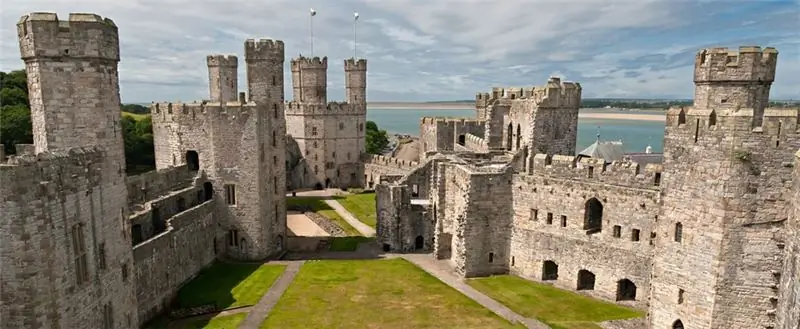
The history of Wales, the country now part of the United Kingdom, began with a conglomerate formed by independent Celtic kingdoms. Another feature of this territory is that it is surrounded by the sea on three sides, with four English counties adjoining it on the fourth side.
Ice Age and after
Naturally, documentary evidence could not survive, but historians argue that the last ice age contributed to the appearance of people in these territories. But there is evidence of the occupation of Britain by the Romans, who founded several forts on these lands. Guests from the south were engaged in gold mining, brought here culture, Christianity (in the 4th century) and even married local women.
After the departure of the Romans, the local Britons created numerous small kingdoms. The new formations, located in the southern regions, quickly conquered the Anglo-Saxons. The Britons from Wales managed to defend their positions. The lands here were less fertile, there were no rich cities, so the territories were not of interest to the conquerors.
In the VIII century, the history of Wales, in short, is associated with several large kingdoms, which constantly sorted out relations among themselves. Moreover, to strengthen their power, they did not hesitate to invite the inhabitants of Ireland, Scandinavians or the same Saxons. There was no single state, but the kingdom was united by a set of laws and a common historical and cultural heritage.
After the Norman conquest
The next phase in the history of Wales begins after 1066, when the Normans conquered vast English territories. There were attempts to unite the Welsh kingdoms into a single state, but to no avail.
In 1282, these territories were captured by the troops of King Edward I, the British built several powerful forts-castles to control the local residents. After a while, the final merger of England and the Principality of Wales took place, Welsh law under Henry VIII was replaced by English.
New time - new life
Gradually, old traditions are becoming a thing of the past, the way of life of the English nobles is becoming fashionable, the Welsh language is losing its significance not only at the state level, but also in everyday life. On the other hand, industry begins to actively develop in the region, including ferrous and non-ferrous metallurgy due to the discovery of large deposits of coal, tin, and iron ore.
The 19th century was characterized by the further growth of the Wales economy and related industries. In addition, an active political life, national and labor movement begins here.






